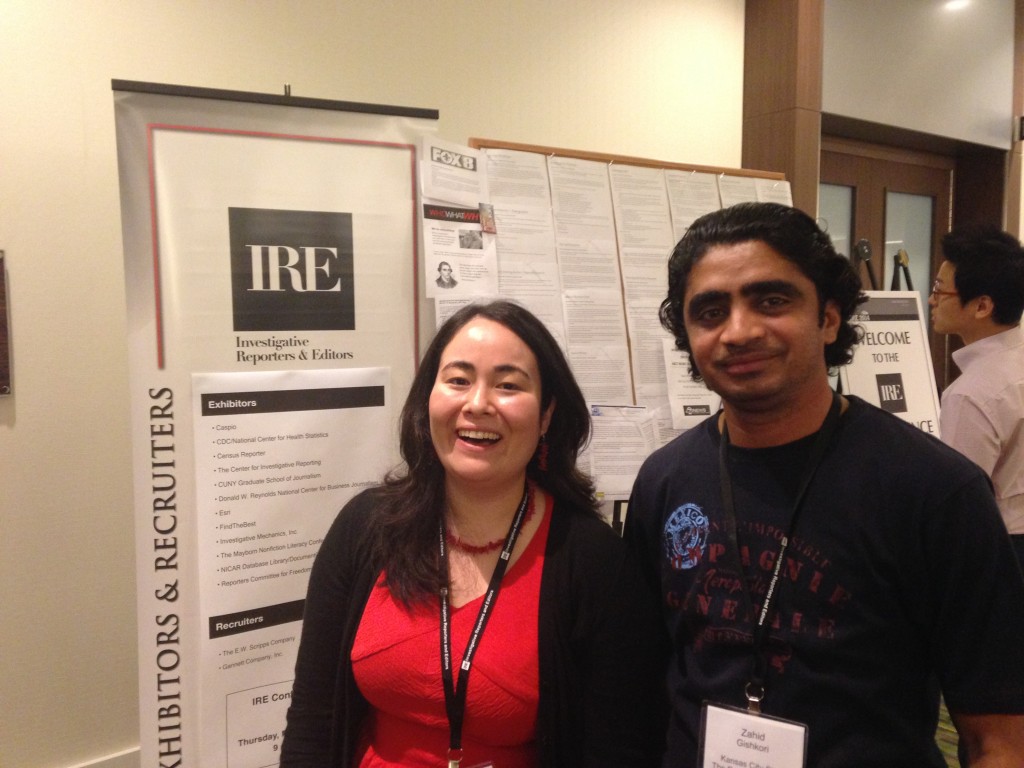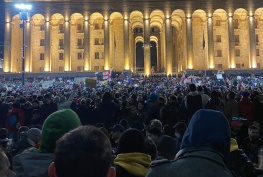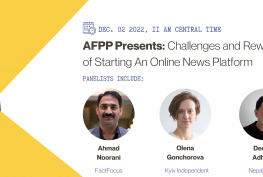By Zahid Gishkori
“Why do we need investigative journalism” was a key question in my mind when I left for the Investigative Reporters and Editors (IRE) Conference held in San Francisco, from June 25-28. More than 1,600 investigative journalists from more than 40 countries attended. The turnout was a record in IRE’s 40-year history.
The journalists firmly believed that investigative reporting could expose flaws in commonly held beliefs that can take nations in dangerous directions. Investigative journalism poses a huge threat to powerful rulers trying to manipulate a population, said IRE President David Cay Johnston.
He said the conference’s goal was to have investigative journalists share ideas on “how to speak for the voiceless and expose the truth at all cost.”
From Sarah Cohen of The New York Times, to Brant Houston, Knight Chair in Investigative and Enterprise Reporting at the University of Illinois, all senior investigative editors mentored young investigative journos there.
In interaction with participants, I spoke about journalists working in Pakistan. I shed light on these challenges — lack of training, capacity building, ethics, whistleblower protection and witness protection. Perhaps, the most rewarding part — exposing the truth – presents the most troubling challenge to Pakistani journalists.
After listening to me, my new friends Brant Houston and David Kaplan of Global Investigative Journalism Network said they believed that access to information laws should be made operative in every country.
As a member of IRE, I learned in a board meeting that Americans spend millions of dollars on training journalists, surpassing Germany and the United Kingdom, which trained more journalists a decade ago. IRE alone spent $1.62 million for promotion of investigative journalism across the globe last year. Some 46 other private organizations also promote investigative journalism. The U.S. Department of State itself sponsors journalists globally to learn modern techniques.
Here, media leaders believe that investigative journalism cannot survive without utilizing the latest technologies. Unfortunately in Pakistan we have limited resources for new technology.
At the conference, many also asked me why press freedom is constantly under threat in Pakistan. Journalists in my country are vulnerable both in finances and security.
Every second, it seems, journalists from America and elsewhere are writing books based on his or her experiences. Very few Pakistani do this. The reason is obvious — limited resources for quality work.
In a nutshell, what I’ll be taking back to Pakistan from the IRE conference is courage to face threats from the elites of society. But I am committed to working within the law, using ethical methods for getting information for the public.
In my opinion, investigative journalism is very vital for our flourishing democracy, where Press Freedom is already in danger. This kind of reporting contributes accurate information for people to form opinions — and that benefits the nation.
The writer is an Alfred Friendly Fellow in the United States.






